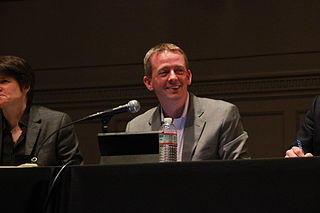A Quote by Sylvia Earle
In the past few decades, Earth's natural systems have endured more pressure than in all preceding human history.
Related Quotes
The phrase 'Sense of the Earth' should be understood to mean the passionate concern for our common destiny which draws the thinking part of life ever further onward. The only truly natural and real human unity is the spirit of the Earth. . . .The sense of Earth is the irresistable pressure which will come at the right moment to unite them (humankind) in a common passion.The Age of Nations is past. The task before us now, if we would not perish, is to build the Earth.
I can no more explain why I like "natural history" than why I like California canned peaches; nor why I do not care for that enormous brand of natural history which deals with invertebrates any more than why I do not care for brandied peaches. All I can say is that almost as soon as I began to read at all I began to like to read about the natural history of beasts and birds and the more formidable or interesting reptiles and fishes.
For any exam in history, here is the answer: all human history is the struggle between systems that attempt to shackle the human personality in the name of some intangible good on the one hand and systems that enable and expand the scope of human personality in the pursuit of extremely tangible aims. The American system is the most successful in the world because it harmonizes best with the aims and longings of human personality while allowing the best protection to other personalities.
We really are living in an age of information overload. Google estimates that there are 300 exabytes (300 followed by 18 zeros) of human-made information in the world today. Only four years ago there were just 30 exabytes. We've created more information in the past few years than in all of human history before us.
If the history of the western moral imagination is the story of an enduring and unending revolt against human cruelty, there are few more consequential figures than Raphael Lemkin - and few whose achievements have been more ignored by the general public. It was he who coined the word 'genocide.' He was also its victim.
Natural history is not taught in seminary. This is curious, as most people in pastoral ministry are about 567 times more likely to be asked about cosmology or sub-nuclear physics or human biology or evolution than they are to be asked about irregular Greek verbs or the danger of the patripassionist heresy. If we monotheists are going to go around claiming that our "God made the heaven and the earth," it is not unreasonable to expect us to know something about what that heaven and earth actually are.
































